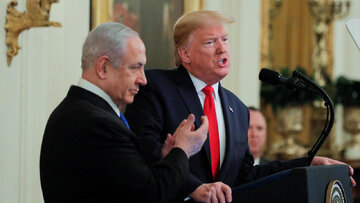The recent statement by the Supreme Leader of the Islamic Republic of Iran—that “the noble Iranian nation will submit to neither war nor an imposed peace”—is far from a mere slogan or rhetorical flourish. Rather, it forms the cornerstone of a defensive-political doctrine that may aptly be described as “active resistance” against recurring patterns of warmongering, threat manufacturing, and the imposition of unjust regional equations. This assertion is a direct reflection of Iran’s strategic independence in the international system and a reaffirmation of its national dignity in the face of external pressures.
Iran's historical record—during the years of the Sacred Defense (Iran–Iraq War) and throughout other regional crises—demonstrates a consistent truth: the nation has never been an initiator of war, but in the face of aggression and pressure, it has stood firm and inflicted heavy costs on its adversaries. Today, as the enemy attempts to manipulate regional equations through more complex tactics—sometimes via limited military operations, at other times through seemingly peaceful yet deeply colonial overtures—Iran remains steadfast in its honorable stance: it will neither fall into the trap of the enemy’s war games nor be deceived by a peace that conceals infiltration, coerced concessions, or gradual disarmament.
Within this context, the phrase “neither war, nor imposed peace” accurately encapsulates a policy rooted in smart deterrence—one that does not seek to impose Iran’s will on the regional order, but rather emphasizes justice, collective security, and respect for the sovereignty of nations. Consequently, Iran’s response to the recent aggressions by the Zionist regime has been neither passive nor emotional; instead, it has been shaped by calculated judgment, coordinated utilization of military and diplomatic capacities, and, most critically, national unity and international legitimacy.
In response to Israel’s attempts to recreate limited, targeted wars aimed at eroding Iran’s deterrent power and garnering support from extra-regional powers, the Islamic Republic’s strategy does not consist of impulsive retaliation. Rather, it is grounded in a framework of “intelligent balancing.” Iran has demonstrated that it possesses the capacity for firm and decisive response, but it exercises this power at a time and place of its choosing—when such action will reinforce strategic balance in its favor and raise the enemy’s cost to a deterrent threshold.
On the other hand, an imposed peace also holds no place in the lexicon of the Islamic Republic. A peace that disregards the rights of nations, justice, and the legitimate interests of countries—designed merely to temporarily suppress the flames of crisis and serve the goals of hegemonic powers—is, in truth, nothing more than war by other means. Such a peace offers no guarantee of security for nations, nor is it sustainable. The historical experience of agreements such as Camp David, Oslo, or the Abraham Accords has made clear to the region’s peoples that peace without justice is short-lived and yields bitter outcomes.
The Islamic Republic of Iran, relying on national strength, strategic self-confidence, and popular support, will never enter a war unless it is imposed upon it—and will never accept peace unless it is rooted in justice and aligned with the dignity of the Iranian people.
Moreover, the record of modern conflicts—especially in West Asia—shows that whenever the U.S. or the Zionist regime has imposed a ceasefire or peace on their adversaries, it has not been to end war but rather as a tactic to regroup militarily, rebuild their forces, and enhance offensive capabilities. Multiple examples from Lebanon, Palestine, Iraq, and even the former Yugoslavia reveal that these actors have used imposed peace as a “wartime pause” rather than a path toward lasting stability. From the Supreme Leader’s perspective, accepting a peace designed by the enemy merely grants them time to rearm and act more aggressively in the future.
Within this framework, the Leader’s statement—that “the noble Iranian nation will submit to neither war nor an imposed peace”—is both a historical and strategic warning. It is a cautionary directive grounded in a deep understanding of hegemonic behavior and the bitter experiences of other nations. It seeks to prevent the Islamic Republic from entering any unjust political equation and ensures the preservation of Iran’s superior strategic position in the long run.
In conclusion, we turn to the profound words of the Commander of the Faithful, Imam Ali (peace be upon him), who advised in his letter to Malik al-Ashtar upon appointing him governor of Egypt:
“Do not reject a peace to which your enemy invites you and in which God’s pleasure is sought; for in peace there is rest for your soldiers, relief from your anxieties, and security for your land. However, be extremely cautious of your enemy after making peace with him. For an enemy may draw near in order to deceive. Therefore, be prudent, and do not place undue trust in him.”
(Nahj al-Balagha, Letter 53)
Mohammad Haeri Shirazi






Your Comment